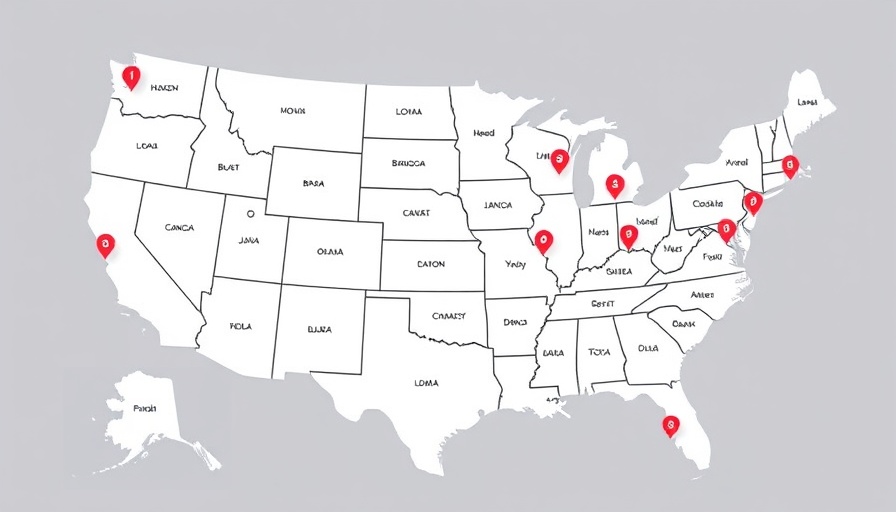
Transforming Cardiovascular Care: A New Initiative
On July 28, 2025, the American Heart Association (AHA) unveiled an ambitious program aimed at addressing the overwhelming challenges associated with cardiovascular disease. Expanding from an initial five regions to a total of 15, this Cardiovascular-Kidney-Metabolic Health Initiative is set to revolutionize how healthcare providers across the United States manage conditions closely linked with heart disease and stroke. While the initiative primarily targets regions with high disease prevalence, it serves as a model for a proactive approach to interlinked health problems impacting countless lives.
Why Focus on Cardiovascular-Kidney-Metabolic Syndrome?
CKM syndrome refers to a troubling combination of health issues: cardiovascular disease, kidney disease, diabetes, and obesity. These conditions do not exist in isolation; when one deteriorates, the others often follow suit. With the alarming statistic that merely 10% of U.S. adults enjoy excellent CKM health, this initiative addresses a looming public health crisis. The AHA's initiative aims to enhance awareness, improve screening processes, and solidify treatment methods to combat CKM syndrome. Each participating region will see a network of 150 health care sites enrolled, directly benefiting over a quarter million patients.
Connecting Communities and Healthcare
The initiative has been designed to not only involve healthcare professionals but also engage local communities in combating CKM syndrome. Health care sites recognized as “CKM Health Groundbreakers” will work collaboratively to streamline patient care, enhancing pathways to essential resources for those facing barriers, such as transportation and access to medication. As Chiadi Ndumele, M.D., Ph.D., FAHA, noted, “There’s a need to move beyond individual conditions. Through this initiative, we aim to establish a model of care that ensures evidence-based therapies are consistently provided.” This approach emphasizes integrated health care that transcends specialty silos and addresses the unique needs of diverse populations.
Impact on Local Health Systems
The impacts of CKM syndrome are particularly pronounced in areas with demographic and socio-economic disparities. Regions facing higher rates of obesity, hypertension, and diabetes are prioritized for this initiative. For instance, cities and areas like the Bronx and Brooklyn in New York, Las Vegas, and Miami will see tailored interventions aimed at their unique health profiles. By customizing approaches to local disease patterns, the initiative promises a significant step toward reducing heart disease incidence across varied communities.
Future Predictions: The Role of Education and Awareness
This initiative is not a standalone event but part of a continuing dialogue on public health awareness. Educational programs that raise awareness about the importance of cardiovascular-friendly choices, nutrition, and lifestyle habits will be essential. For instance, introducing nutrient-dense foods for heart support, such as seasonal fruits and vegetables, emphasizes the preventative role diet plays in maintaining cardiac wellness. Teaching communities about healthy eating styles that lower heart risk and engaging local markets to provide accessible healthy options can create a sustainable culture of health.
Taking Action: The Role of Individuals
Individuals can play a proactive role by making informed lifestyle choices that impact their cardiovascular health. Regular physical activity that maintains a safe cardio target zone for exercise is crucial. Residents can adopt weekly habits surrounding meal prep for heart care, focusing on meals designed to support circulation. Simple changes, like incorporating natural circulatory benefits of garlic into daily meals, can yield dramatic improvements in heart health. The knowledge that even modest lifestyle changes can strengthen one’s heart provides a tangible pathway for action.
Getting Involved: Resources and Support
To gain insight into how to better care for your heart, interested community members are encouraged to reach out to health specialists. For senior benefits and personalized advice about cardiovascular health, feel free to contact Terrijo Parker at 231-571-6100. Don’t wait; take the first step toward a healthier heart today!
 Add Row
Add Row  Add
Add 




Write A Comment